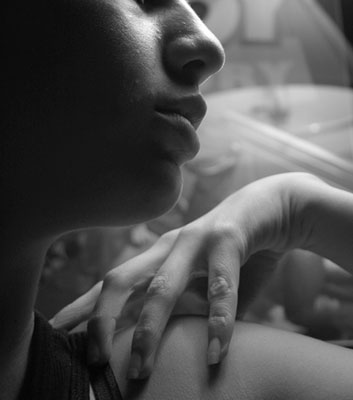All Nonfiction
- Bullying
- Books
- Academic
- Author Interviews
- Celebrity interviews
- College Articles
- College Essays
- Educator of the Year
- Heroes
- Interviews
- Memoir
- Personal Experience
- Sports
- Travel & Culture
All Opinions
- Bullying
- Current Events / Politics
- Discrimination
- Drugs / Alcohol / Smoking
- Entertainment / Celebrities
- Environment
- Love / Relationships
- Movies / Music / TV
- Pop Culture / Trends
- School / College
- Social Issues / Civics
- Spirituality / Religion
- Sports / Hobbies
All Hot Topics
- Bullying
- Community Service
- Environment
- Health
- Letters to the Editor
- Pride & Prejudice
- What Matters
- Back
Summer Guide
- Program Links
- Program Reviews
- Back
College Guide
- College Links
- College Reviews
- College Essays
- College Articles
- Back
Hyphenated
“So what are you?” I often get questions like these from passerby’s, who within half a second upon setting their eyes on me wonder where I come from, where my thick black mane of hair and almond-shaped eyes have originated. Immediately, I come up with the word: Filipino. But truly, that is not the answer, for it is only my exterior that is wholesomely Filipina.
So each time I get asked the same token question, and I ponder my situation before finally saying the only seemingly reasonable answer: “I’m Filipina.” I say, but inside I know that I have lied due to the fact that I am not Filipina, but Filipina-American.
I’ve struggled with this issue my entire life. How two words can be so simple but still reflect so much confusion and complexity. But still, I know there are many others who have struggled with this issue as much as I have.
I’m referring to the “hyphen.” The in-between of two completely unique cultures, a child born of foreign spawn but raised under the ways of America. Caught in between two cultures, while still trying to stay true to oneself. I am completely Americanized, born in Texas, raised in Tennessee but still grasped under the values and traditions of a Filipino family.
My mother and father immigrated to the States right after they were married in the summer of ‘89: my father was studying to become a doctor, hopeful and starry-eyed about the opportunities of a promising new world. My mom: a young wife who had been strictly educated in a Catholic school under the guidance of nuns throughout her primary and undergraduate education. Soon after, in 1993 they bore me.
As I grew up and made friends, I saw the interaction between them and their mothers to be completely different from the one with mine. Their language, their topics of conversation. Often, what they talked about seemed taboo to my mother. Sometimes, I would get scolded and accused of “disrespect” because of the language I talked with my mother and I never understood it because when I saw my friends do the same, it was a normal daily routine. Suddenly, I fit the puzzle pieces together this summer.
“What is disrespect to your mother is what regular conversation is to you,” my wise grandmother replied to me. “Your mother seems to be Americanized due to the fact that she has lived here for 20 years. But beneath her lies the persona of a Filipina. Imagine being raised in the Philippines from 1st grade on up until college whiles you, all your life have always been an American. That’s why you clash.”
Finally everything seemed to fit, all of the snaps and remarks from my parents of “respect,” and “culture.” Often, I saw flecks of disappointment in my father’s eyes whenever someone asked if I speak Filipino. There had so many events, so many situations when we culture clashed that it seemed only befitting that my grandmother said was right.
“Why did I end up with a child like you?”
“When I was your age, I never talked like you do to my mother.”
“You are nice to other people, but you aren’t nice to your parents.”
There could be so many answers to why I always have been scolded by my parents, but all my life I struggled with being the ideal “good girl.” But what I wasn’t the ideal “Filipina good girl.” My liberal political beliefs cannot be tolerated due to the strict upbringing of my mother, my interest in boys as a 16-year old girl are prohibited, the ideas that being a doctor is the only way you can be successful. Sure, not all Filipino parents are like this, but this sure isn’t what I learned from America.
It will be soon when I can talk to my parents about my double identification. But I hope they will see, as will others, that I am not Filipina. Sure, I look the part; I can play it in a movie, be a model for a Filipino company, etc. But inside, I will never be Filipina, because what beats will be an American heart. What lives and thrives is an American soul. What will always is the answer to every token question will just simply be: American.

Similar Articles
JOIN THE DISCUSSION
This article has 0 comments.
